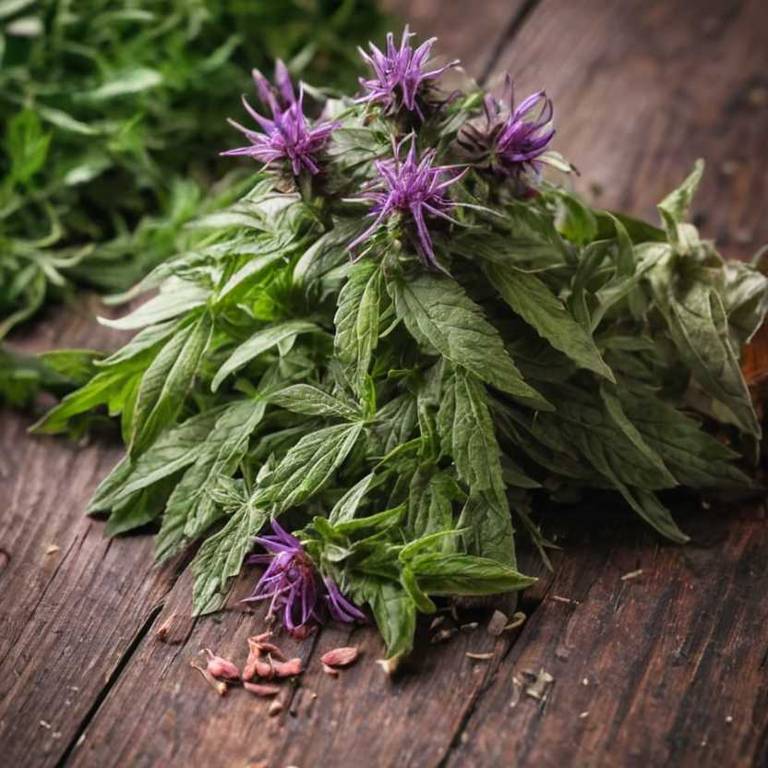By Leen Randell
Updated: Jul 06, 2024
What Are The Medicinal Properties Of Monarda Didyma (Bee Balm)?

Monarda didyma, also known as bee balm, has health benefits such as calming digestive issues, reducing inflammation, and exhibiting antiseptic properties.
Its medicinal constituents include essential oils like citral, limonene, and carvacrol, which are responsible for its antimicrobial and anti-inflammatory effects. The herb is often prepared as a tea, tincture, or infused oil for topical application. Excessive consumption of bee balm may cause stomach upset, diarrhea, or allergic reactions.
Caution is advised when using bee balm, especially for pregnant or breastfeeding women, due to its potential to stimulate uterine contractions and interact with certain medications.
This article explains the health benefits, active constituents, medicinal preparations, possible side effects, and precautions related to Monarda didyma.
What are the health benefits of Monarda didyma?
Monarda didyma, also known as bee balm, has health benefits such as soothing digestive issues and relieving symptoms of irritable bowel syndrome.
The plant's essential oils also have antimicrobial properties, making it effective against certain strains of bacteria and viruses. Additionally, bee balm's antispasmodic and anti-inflammatory properties can help alleviate menstrual cramps and other inflammatory conditions.
Its calming effects can also promote a restful night's sleep.
Here's a detailed article about the 10 health benefits of Monarda didyma.
What are the active constituents of Monarda didyma?
Here's a detailed article about the 10 active constituents of Monarda didyma.
What are the medicinal preparations of Monarda didyma?
Monarda didyma, also known as bee balm, has medicinal preparations such as teas, infusions, and essential oils, which are used to alleviate digestive issues, reduce inflammation, and relieve stress.
The leaves and flowers are used in herbal remedies to treat coughs, colds, and sore throats, while the essential oil is used to calm skin irritations and promote wound healing.
It is also used as a natural insect repellent.
Here's a detailed article about the 10 medicinal preparations of Monarda didyma.
What are the possible side effect of using Monarda didyma improperly?
Improper use of Monarda didyma, also known as bee balm, increases the chances of experiencing side effects such as digestive issues, nausea, and allergic reactions.
In rare cases, consuming bee balm in large quantities or for extended periods can lead to kidney problems and increased blood pressure.
Additionally, individuals with certain health conditions, such as diabetes or high blood pressure, may need to consult with a healthcare professional before using bee balm for medicinal purposes.
Here's a detailed article about the 10 most common side effects of Monarda didyma.
What precautions to take when using Monarda didyma medicinally?
Here's a detailed article about 10 precautions to take when using Monarda didyma.